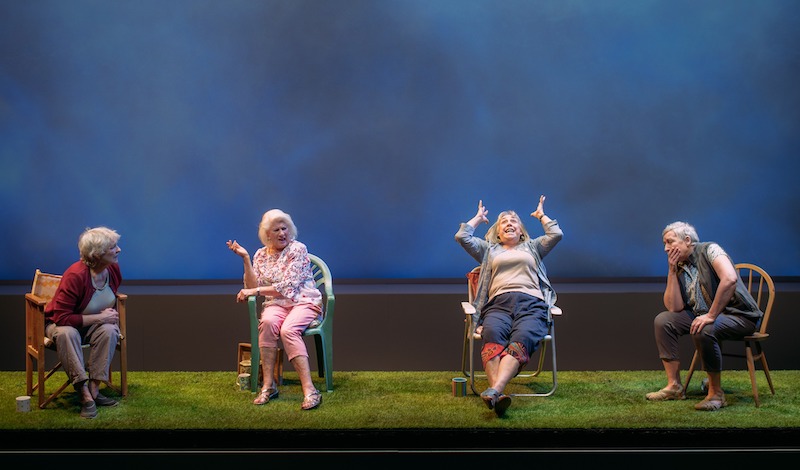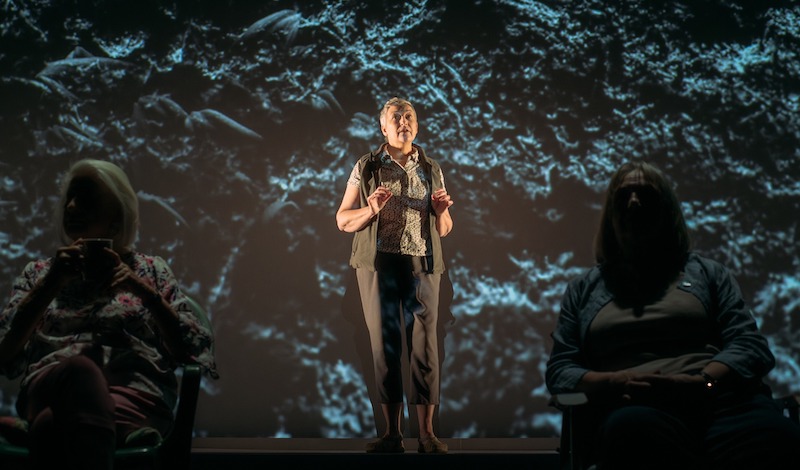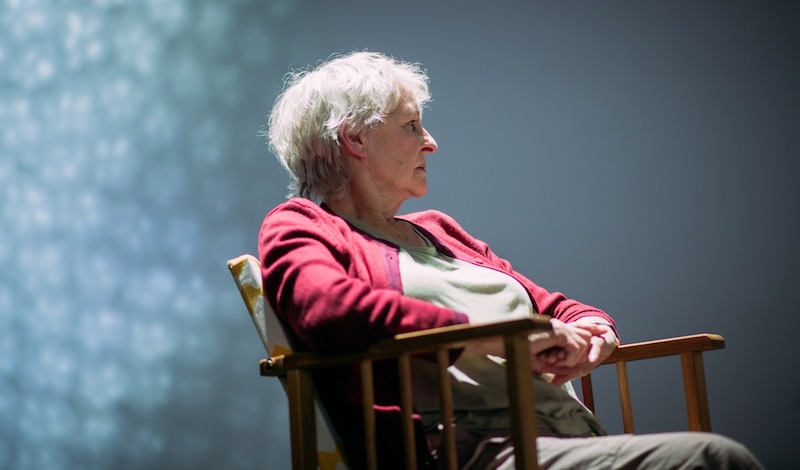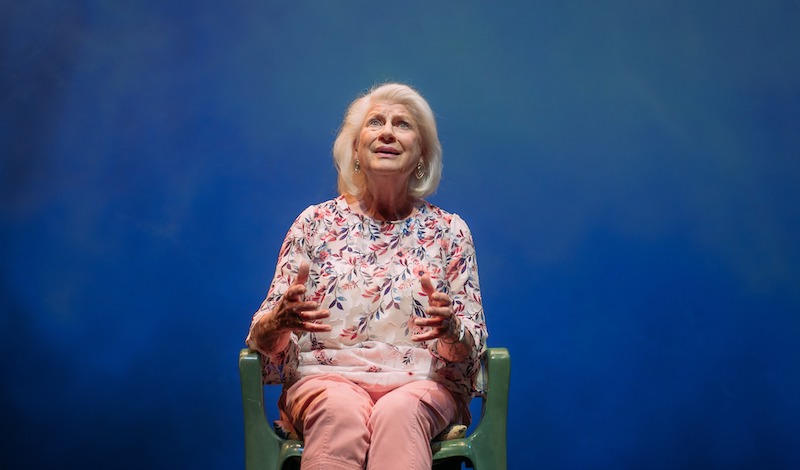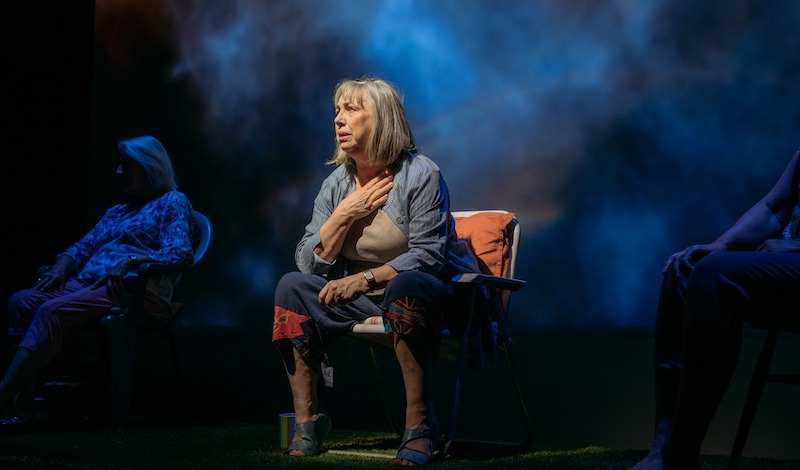Escaped Alone
★★★★☆ Environmental dystopia
Traverse: Wed 13 – Sat 16 March 2024
Review by Tom Ralphs
Following its Scottish premiere at The Tron earlier this month Escaped Alone, Caryl Churchill’s dystopian play that had its UK premiere at the Royal Court in 2016, comes to the Traverse for five performances only.
With a career spanning more than five decades and 30 stage plays, Churchill still manages to be outside the mainstream – a pointless answer when 100 people were asked to name the writer of her best known play on the TV quiz show – whilst also gaining the kind of continued critical acclaim that eludes most mainstream writers.
Escaped Alone perhaps illustrates some of the reasons for this dichotomy. While it doesn’t eschew contemporary issues, dealing with environmental catastrophe, it takes a unique and uncommercial approach to the topic, mixing apocalyptic narration with the cosy chats of retired women sitting in a garden on a summer’s day.
It is very much a play where nothing happens and everything happens. The three women (played by Anne Kidd, Irene Macdougall and Joanna Tope) are joined by their neighbour Mrs. Jarrett (Blythe Duff), who switches between listening to, and occasionally joining in with, their conversations and providing a commentary on what is happening in the outside world.
inevitability and fatalism
Sometimes bleak, sometimes darkly comic, and often both of these things at the same time, the narration charts the environmental collapse of a place outside the garden from its causes to its consequences.
Duff’s matter of fact delivery brings out the sense of inevitability and fatalism that makes what should be an unreal future seem like a logical progression from the present day society.
The seemingly innocuous conversation of the retirees is also not what it seems, shifting seamlessly between mundane day-to-day chat to extraordinary and intimate confessionals. It’s only when the actors break into monologues that the real heft of the stories and what lies beneath the women and their conversations get to emerge.
All three excel in these monologues. Tope’s dislike of cats goes from being a minor irritant to a life-defining paranoia as she moves from calm restraint to full and florid obsession. Kidd moves in the opposite direction in a piece that calls into question the motivations behind everything her character has said or done up to that point.
composed disposition
Macdougall’s account of a manslaughter that may or may not have actually been murder, delivered with a composed disposition that belies the subject matter, provides a third take on the gap between words and their meanings and the coping methods that people deploy.
Anna Orton’s set design is simple and effective. A strip of grass and four deckchairs for the garden, and a raised platform for Duff to step away from for the narrative sections. Lewis den Hertog’s backdrop projection moves from cloud free summer afternoon to a variety of black and white scenes that illustrate the death of nature and lack of hope in the outside world.
Joanna Bowman’s direction works perfectly in matching mood to message, carefully underplaying the dramatic elements and elevating the non-dramatic moments in the conversation, and contrasting this with the dispassionate disassociation of the narrative.
concise
At 50 minutes, this is a concise piece that knows not to outstay its welcome by over emphasising its message, delving too deeply into the lives of the women or bringing the events happening outside of the garden into the space they occupy.
As to whether it is revelatory, innovative and insightful; or merely a retelling of ideas and themes Churchill has explored elsewhere, it’s hard to say. It is undoubtedly a confirmation of Churchill’s ability to distil big messages in small packages, but at the same time, the two strands of the play sometimes feel too separated and disconnected from each other, in order to bring out the full dystopian future it is suggesting.
Churchill admirers will find more than enough to savour, but it’s unlikely to make any converts amongst the hundred people who couldn’t name her on Pointless.
Running time: 50 minutes (no interval)
Traverse, 10 Cambridge Street, EH1 2ED. Phone booking: 0131 228 1404
Wed 13 – Sat 16 Mar 2024
Evenings: 7.30pm; Sat mat: 2pm (Trav 1).
Tickets and details:Book here.
ENDS








